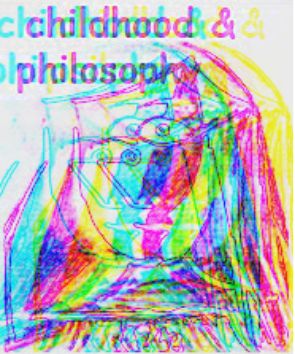“educating children for wisdom”: reflecting on the philosophy for children community of inquiry approach through plato’s allegory of the cave
DOI:
https://doi.org/10.12957/childphilo.2024.79414Keywords:
philosophy for children, education, community of inquiry, wisdom, platoAbstract
There is a widespread belief in Philosophy for Children that Plato, the famed Greek thinker who introduced philosophizing to the world as a form of dialogue, was averse to teaching philosophy to young children. Decades of the implementation of P4C program’s inquiry pedagogy have shown conclusively that children are not, in fact, incapable of receiving philosophical training and education. But was Plato wrong? Or has he been largely misunderstood? Does his theory of education show the value of cultivating virtues in the young? This paper attempts to answer these questions by reading the Republic, specifically Plato’s theory of education and the allegory of the cave, as an education manual that can strengthen one’s understanding of the pedagogical approach of P4C and the importance of educating children in wisdom and other intellectual virtues. It demonstrates that the Platonic conception of education is consistent with P4C’s theoretical position of education being transformative, facilitative, and virtue-based. By unpacking the symbolisms and meanings of the cave metaphor, it also discusses effective facilitation, teacher capacity building, and sharing of responsibility in education. Ultimately, drawing from Plato’s theory of education can recalibrate and improve the way one sees the role of education in building caring communities that empower learners and educators for democracy, higher learning, and achievement.
Downloads
References
Bleazby, J. B. (2012). Dewey’s Notion of Imagination in Philosophy for Children. Education and Culture, 28(2), 95-111. https://www.jstor.org/stable/10.5703/educationculture.28.2.95. Accessed 19-06-23.
Canuto, A. T. (2015). Reflections on Theory and Pedagogy of Challenges in Facilitating Children’s Dialogues in the Community of Inquiry. International Journal of Whole Schooling, 11(1), 1-15.
Castleberry, J. T., & Clark, K.M. (2020). Expanding the Facilitator’s Toolbox: Vygotskian Mediation in Philosophy for Children. Analytic Teaching and Philosophical Praxis, 40(2), 44-59. https://philarchive.org/archive/CASETF-2. Accessed 26-06-23.
Freire, P. (1970). Pedagogy of the Oppressed. New York: Continuum.
Gazzard, A. (2012). Do you need to know philosophy to teach philosophy to children? A comparison of two approaches. Analytical Teaching and Philosophical Praxis, 33(2), 45-53.
Green, L. (2015-16). Facilitation is No Mere Technical Skill: A Case Study of a Small Group of ‘Different’ Students. Analytic Teaching and Philosophical Praxis, 36, 63-75. https://journal.viterbo.edu/index.php/atpp/article/download/1139/945/1789. Accessed 26-06-23.
Lipman, M. (1985). Philosophical Practice and Educational Reform. Journal of Thought, 20(4), 20-36.
Lipman, M. (1993). Promoting Better Classroom Thinking. Educational Psychology, 13(3-4), 291-304.
Lipman, M. (2003). Thinking in Education. 2nd ed. Cambridge: Cambridge University Press. https://www.cambridge.org/core/books/thinking-in-education/C96667BA6F51079D8AA8D3983C57581C
Lipman, M. (2011). Philosophy for Children: Some Assumptions and Implications. Ethics in Progress, 2(1), 3-16.
Losin, P. (1996). Education and Plato’s Parable of the Cave. The Journal of Education, 178(3), 49-65.
Miller, M. (2007). Beginning the “Longer Way”. In G.R.F. Ferrari (Ed.). The Cambridge Companion to Plato’s Republic (Chap. 12, pp. 310-344). Cambridge: Cambridge University Press.
Norris, C.A., Soloway, E., Tan, C.M., & Looi, C-K. (2013). Inquiry Pedagogy and Smartphones: Enabling a Change in School Culture. Educational Technology, 53(4), 33-40.
Oyler, J. (2016). Philosophy with Children: The Lipman-Sharp Approach to Philosophy for Children. In M. A. Peters (Ed.). Encyclopedia of Educational Philosophy and Theory (pp. 1-7). Springer, Singapore. https://doi.org/10.1007/978-981-287-532-7_226-2.
Plato. (2003). The Republic. (G. R. F Ferrari, Ed.). (T. Griffith, Trans.). Cambridge Texts in the History of Political Thought. Cambridge: Cambridge University Press.
Sayson, C. M. (2023). Classroom Lectures and Correspondence in Philo 302: A Seminar on Ancient Philosophy. University of the Philippines Diliman. February to June, 2023.
Shapiro, D. (2012). Plato Was Wrong! Footnotes on Doing Philosophy with Young People. R&L Education.
Sharp, A. M. (1991). The Community of Inquiry: Education for Democracy. Thinking: The Journal of Philosophy for Children, 9(2), 31-37.
Sharp, A. M. (1992) Women, Children, and the Evolution of Philosophy for Children. In R. Reed, A. M. Sharp (Eds.). Studies in Philosophy for Children: Harry Stottlemeier’s Discovery (pp. 42-51). Philadelphia: Temple University Press.
Yunis, H. (2007). The Protreptic Rhetoric of the Republic. In G. R. F Ferrari (Ed.). The Cambridge Companion to Plato’s Republic (pp. 1-26). Cambridge: Cambridge University Press.
Zamosc, G. (2017). The Political Significance of Plato’s Republic. Ideas Y Valores, 66(165), 237-265.




